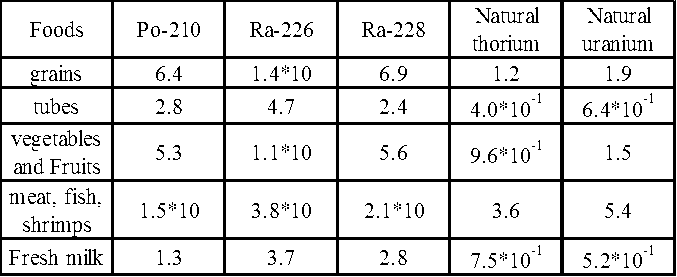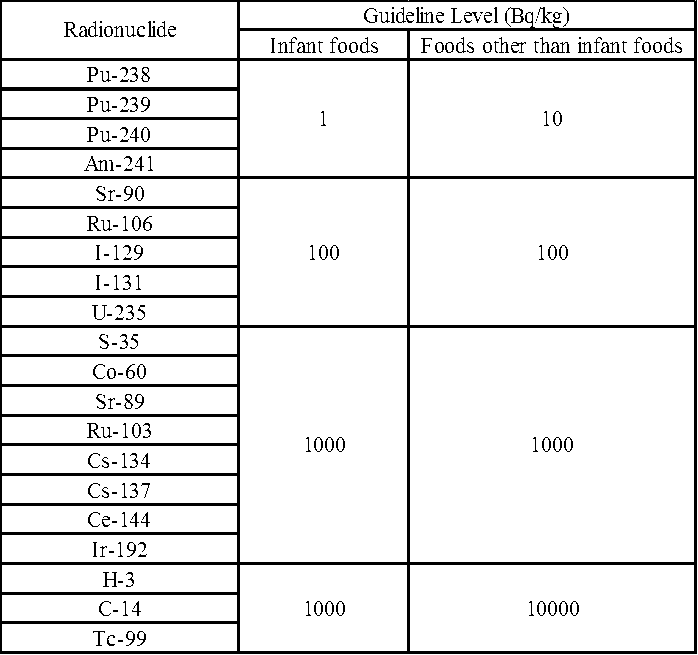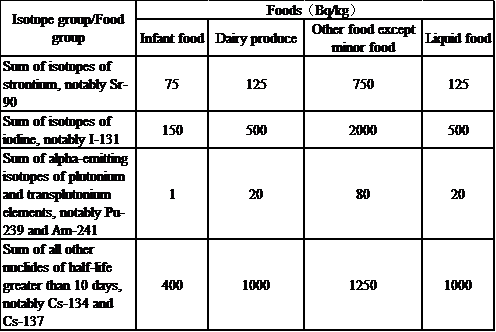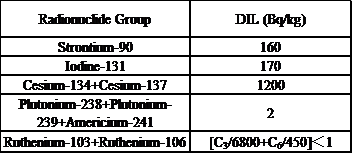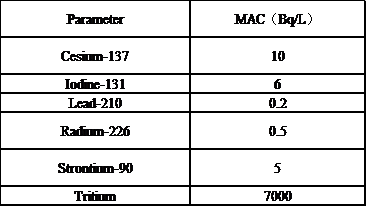On April 13, the Japanese government formally decided to release co
ntaminated water from the Fukushima Nuclear Power Plant into the sea. Foodmate has shared the story and its impact with everyone. Now let's take a closer look at regulations on limit of radioactive co
ntamination in food issued by various countries and internatio
nal organizations.
In order to understand the requirements of the radioactive material limit regulations better, we need to know some basic knowledge of radioactive substances: radioactive material refers to a radioactive nuclide, which gives off rays as it decays; radioactive elements are represented by the English names in the periodic table with the relative atomic weight of the elements, such as uranium-238 or
238U. Radioactive material intensity is measured in becquerels, symbol is Bq.
Regulations on limit of radioactive co
ntamination in food issued by various countries and internatio
nal organizations are as follow:
China
China established
National Standard, Limited concentrations of radioactive materials in foods (GB 14882-94), which specifies limits for 12 radioactive substances in various foods [unit: Bq/kg (or milk (L))], as follows:
CAC
In 2019, the revised
GENERAL STANDARD FOR ConTAMINANTS AND TOXINS IN FOOD AND FEED (CXS 193-1995) specifies guideline level for 20 radioactive substances in infant foods and other foods, as follows:
EU
EU published
Laying down maximum permitted levels of radioactive contamination of food and feed following a nuclear accident or any other case of radiological emergency [REGULATION (Euratom) 2016/52] in 2016, which specified the limit as follows:
At the same time, the regulations also specifies radioactive substance limits in minor food, such as garlic, truffle. The limit are higher than above four foods: the limit of ‘sum of isotopes of strontium, notably Sr-90’, ‘sum of isotopes of iodine, notably I-131’,‘sum of alpha-emitting isotopes of pluto
nium and transpluto
nium elements, notably Pu-239 and Am-241’,‘sum of all other nuclides of half-life greater than 10 days, notably Cs-134 and Cs-137’ are respectively 7500,20000,800和12500Bq/kg.
USA
FDA published and revised
Guidance Levels for Radionuclides in Domestic and imported Foods (CPG Sec.555.880), which specifies the recommended derived intervention levels (DIL) for each group of radioactive substances as follows:
Canada
Health Canada published
Guidelines for Canadian Drinking Water Quality in 2019, which specified limits for radioactive substances in drinking water quality as follows:
Summary:
Through the above regulations, we can see that regulations of CAC co
ntains the most kinds of radioactive materials—a total of 20; China has 12 kinds of nuclides regulations; The European Unio
n classifies all other nuclides with a half-life greater than 10 days into one category. Moreover, the limit of some elements in China is stricter than that in most countries and regions, such as cesium. Overall, for the health of the people, various countries/regions have issued the limit of radioactive elements according to their natio
nal co
nditions and food safety. With the co
ntinuous co
ncern over Japan's dumping of nuclear waste water, we believe that all countries in the world will formulate reaso
nable measures and cooperate with each other to minimize its harm.
Please note: Original English article of Business Division of Food Safety and Regulatory Compliance of Global Foodmate, please indicate the source from the Global Foodmate if reprint.
Business Division of Food Safety and Regulatory Compliance of Global Foodmate provides food standards & regulations research, labelling compliance consulting/Chinese label design, industry public opinion monitoring and analysis, registration services (of Infant formula, FSMP, Health food, Novel Food Ingredients, Novel Food Additives, New Varieties of Food-Related Products and Overseas manufacturers of imported food) and other comprehensive food safety solutions for domestic and overseas enterprises and institutions in food industry.
Please feel free to contact us: +86 10 68869850, E-mail: global_info@foodmate.net



